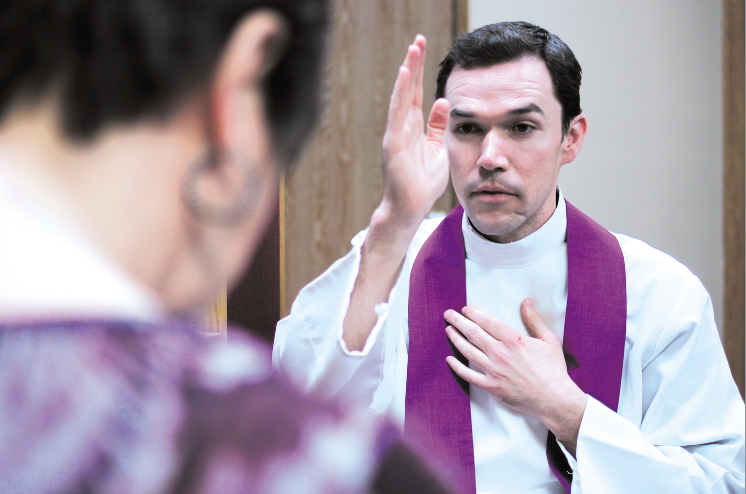Act of contrition catholic
The Act of Contrition is a Catholic prayer that we say during the Sacrament of Confession to express our sorrow for our sins and to resolve to avoid sinning in the future. As a pastor counseling many parishioners over the years, I have seen firsthand the power this simple prayer can have in bringing healing, reconciliation, and a stronger relationship with God. In this post, I’ll explore the meaning behind the Act of Contrition, why we say it, and how it can deepen your faith.
What is the Act of Contrition?
The Act of Contrition, in both its shorter form (typically said during Confession) and its longer form (sometimes said during other prayer times), is at its heart an expression of repentance. By reciting it, we do three main things:
Admit Our Sins: We acknowledge where we have fallen short and failed to follow God’s plan for us. The prayer allows us to be humble and honest about the ways we need forgiveness and grace.
Express Sorrow and Regret: Saying the words out loud causes us to feel and confront the sadness and shame that come with hurting ourselves, others, and God through our sins. It stirs up contrition, or repentance, within our hearts.
Resolve to Avoid Future Sin: On top of being sorry, we promise God that we will try to avoid the near occasions of sin that lead us to stray from Him. The Act says we will “amend my life” with God’s help.
Why do we say this prayer?
The Catholic Church recognizes the Act of Contrition as a critical part of the Sacrament of Reconciliation. It shows the priest hearing your confession that you are truly sorry, you want forgiveness, and you desire reconciliation with God and the church community. However, the prayer is not meant to be superficial or hollow words. The church asks us to pray with sincerity, humility, and faith that God will respond.
Beyond formally confessing sins, the Act of Contrition has value anytime we feel distant from God or recognize areas we need to grow spiritually. Praying it wholeheartedly then can re-orient our minds back towards Him. It allows God to chip away the hardened, indifferent parts of our hearts so that we can receive His unconditional love once more. When said regularly, whether privately or before Confession itself, it provides an opportunity for the Holy Spirit to soften us and shift us to desire God’s will over our own self-interests.
The Background and Meaning of the Prayer
Several slightly different Acts of Contrition exist, but they contain the same main ideas. The shorter version typically stated in the Confession box is:
“My God, I am sorry for my sins with all my heart. In choosing to do wrong and failing to do good, I have sinned against you whom I should love above all things. I firmly intend, with your help, to do penance, to sin no more, and to avoid whatever leads me to sin.”
The longer version expands on each aspect:
“O my God, I am heartily sorry for having offended Thee, and I detest all my sins because I dread the loss of heaven and the pains of hell, but most of all because they offend Thee, my God, Who art all-good and deserving of all my love. I firmly resolve, with the help of Thy grace, to confess my sins, do penance, and to amend my life. Amen.”
Both forms contain the same main ideas:
I am sorry for my sins
I know I have offended God by sinning
I want to avoid sin and any occasions or behaviors that could lead me to sin again
I ask for God’s grace, mercy and help to follow through on this resolve
As you can see, it covers the key elements of repentance – admitting fault, expressing sorrow, and committing to change with humility. Every word holds significance. Ultimately, through this prayer we are re-orienting our hearts to desire closeness with God once more.

How the Act of Contrition Connects Us with God’s Mercy
The Church refers to the Sacrament of Confession as the Sacrament of Reconciliation. Through it, God reconciles us back into right relationship with Him even after we stray. Saying the Act of Contrition allows us to receive that gift of reconciliation. It makes us newly aware of how much we need God’s grace and mature enough to ask for it. God then responds with mercy, because mercy and forgiveness is at the very core of who God is (Psalm 86:5).
I have seen firsthand the immense relief, lightness, and spiritual revitalization parishioners experience when they humbly pray this Act. They feel the weight of guilt, anxiety, and distance from God lift even when the words cross their lips. Some have returned to confession after years away and find unexpected healing through simply admitting their faults out loud and their desire to improve. Others pray the Act outside the confession box when they face difficult life situations, addiction relapses, losses of faith, or painful memories of past abortions, abuse, or sins. Every time, God meets them powerfully in their need, once they give Him the opening through sincere contrition.
In all its forms, the Act of Contrition models the parable Jesus shares in Luke 15:11-32. We are like the prodigal son who squanders our inheritance, hits rock bottom, and finally comes before God admitting our mistakes. God then acts as the merciful Father – He embraces us fully, forgives everything of our past, and welcomes us back without reservation. The Act of Contrition is simply the words for us to take that humbling walk back to our patient and gracious Father. When we do, true reconciliation happens.
I encourage you in your spiritual journey to often pray this simple but profound prayer. Allow it to soften your heart, lead you to sacramental confession when necessary, and guide you back into a renewed relationship with your Heavenly Father whenever you feel distance from His love. If you earnestly seek contrition and desire for God’s presence, He promises to lavish you with mercy and grace every time. God bless you!






